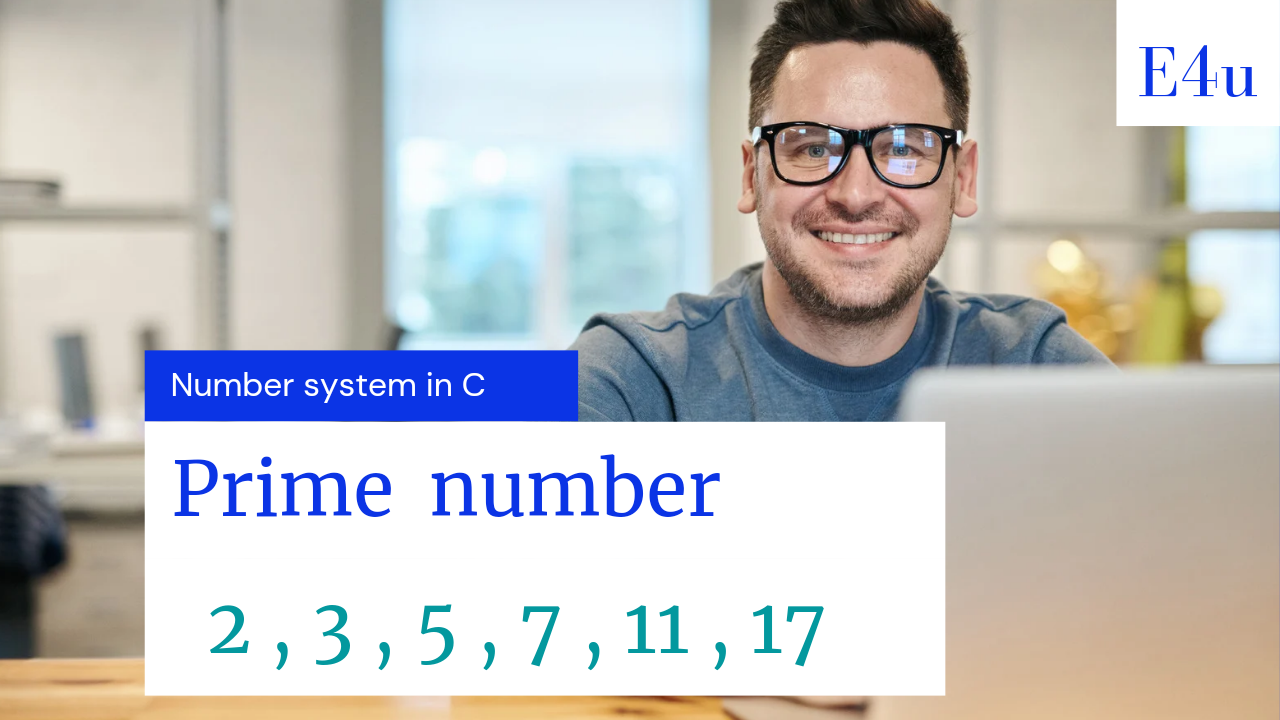
Prime Numbers: C Program Example and Explanation
Program to check whether the given number is a prime or not.
⇒ A number that has only two factors is called a prime number
⇒ Numbers that can only be divided by itself and 1 without remainder is called prime number.
⇒ A prime number is a natural number that has only one and itself as factors.
Example:- 2,3,5,7,11,13,17,21,23,27
Prime Numbers: C Program Example and Explanation
#include<stdio.h>
void main()
{
int i,n,c=0;
printf("enter any number:\n");
scanf("%d",&n);
for(i=1;i<=n;i++)
{
if(n%i==0)
c++;// count when the condition is met
}
if(c==2)
printf("number is prime:");
else
printf("number is not prime:");
}output:
Enter the n: 5
5 is prime
Enter the n: 8
8 is not primeTop Resources
Prime Numbers: C Program Example and Explanation
Design a function to check the given number is prime or not if prime return 1 else 0
Write a C Program to Check if a Number is Prime or Not Using For Loop
Writing a C Program to Print Prime Numbers Between 50 and 100
write a program to print prime numbers in 10 array elements.
Write a C program to input 10 numbers through the keyword and find the number of prime counts it stores the into a separate array and display it.
Further Reading:
Note: If you encounter any issues or specific errors when running this program, please let me know and I'll be happy to help debug them!

